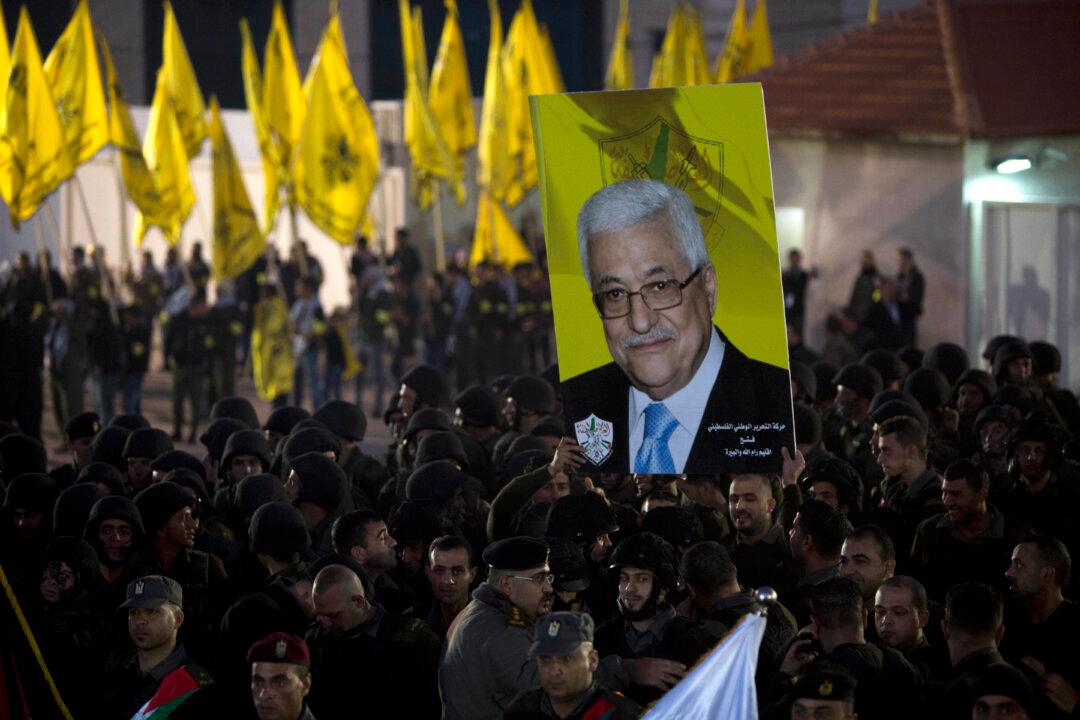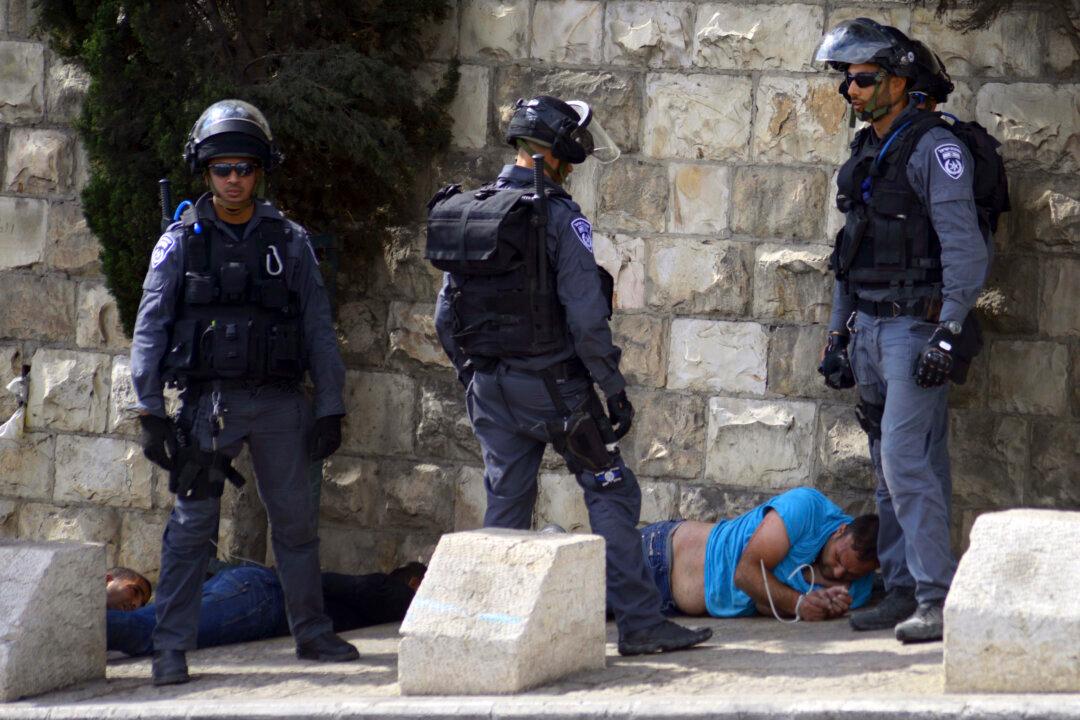RAMALLAH, West Bank—Turning up the pressure on Israel, the Palestinians announced Wednesday that they are joining the International Criminal Court to pursue war-crimes charges against the Jewish state — a risky, high-stakes move that brought threats of retaliation from Israel and criticism from the U.S.
Palestinian President Mahmoud Abbas acted a day after suffering a defeat in the U.N. Security Council, which voted down a resolution setting a three-year deadline for the establishment of a Palestinian state on lands occupied by Israel.
“We want to complain. There’s aggression against us, against our land. The Security Council disappointed us,” Abbas said.
Turning to the international court at The Hague marks a major policy shift, transforming Abbas’ relations with Israel from tense to openly hostile. The ultimate goal is to pressure Israel into withdrawing from the territories and agreeing to Palestinian statehood.
The strategy carries risks, including the possibility the Palestinians themselves could be accused of war crimes over rocket attacks by the extremist group Hamas on Israeli population centers and other violence against Jewish targets.
Israeli Prime Minister Benjamin Netanyahu vowed to take unspecified “retaliatory steps.” In Washington, State Department spokesman Jeff Rathke said the U.S. was “deeply troubled” by the Palestinians’ “escalatory step.” He said it was “entirely counterproductive and does nothing to further the aspirations of the Palestinian people for a sovereign and independent state.”
The Palestinians could seek to have Israeli military or political figures prosecuted for alleged crimes involving settlement construction on occupied lands or actions by the military that cause heavy civilian casualties, for instance.
Israel is not a member of the court and does not recognize its jurisdiction. And the court has no police force and no authority to go into Israel and arrest suspects. But it could issue arrest warrants that would make it difficult for Israeli officials to travel abroad.
Abbas has been under heavy pressure to take action against Israel amid months of rising tensions over the collapse of U.S.-brokered peace talks last spring, a 50-day war between Israel and Palestinian militants in Gaza over the summer, a recent spate of deadly Palestinian attacks on Israeli targets, and Israeli restrictions on access to a key Muslim holy site in Jerusalem.
After two decades of failed on-again, off-again peace talks, the Palestinians have decided to seek recognition of their independence in various global bodies. Joining the International Criminal Court is seen as the strongest playing card.
The Palestinian application to the ICC is expected to be approved within about 60 days.
In a statement, Netanyahu said Israel will protect its troops from prosecution, calling the country’s army “the most moral” in the world. He warned that Abbas’ Palestinian Authority is “the one who needs to fear the International Criminal Court” because of its relationship with Hamas.
Robbie Sabel, an international law expert at the Hebrew University of Jerusalem, agreed the step entails risks for the Palestinians.
“On the other side of the coin — and this is why the Palestinians have hesitated up until now — is that any Palestinian who commits a war crime anywhere in the world and has not been tried by a Palestinian court could also be subject to the jurisdiction of the court,” Sabel said. “So it works both ways.”
The Palestinian U.N. ambassador, Riyad Mansour, has said repeatedly that the Palestinians are not afraid of that possibility.
The Palestinians seek the West Bank, Gaza Strip and east Jerusalem — areas captured by Israel in 1967. Netanyahu, who is seeking re-election in March, has said Palestinian independence can be reached only through negotiations.
Turning to the court became an option for Abbas in 2012, after the United Nations recognized “Palestine” as a non-member observer state.
Abbas made his announcement as the long-dominant Fatah party marked its 50th anniversary.
Yasser Arafat founded Fatah in 1965 with the goal of destroying Israel. The party rose to prominence in the 1970s and ‘80s with a series of hijackings and other attacks. Over time, Fatah moderated and accepted Israel’s right to exist, while seeking a Palestinian state. Arafat died in 2004.
From The Associated Press. AP writers Michael Corder at The Hague; Ian Deitch in Jerusalem; Edith M. Lederer at the United Nations; and Deb Riechmann in Washington contributed to this report.

